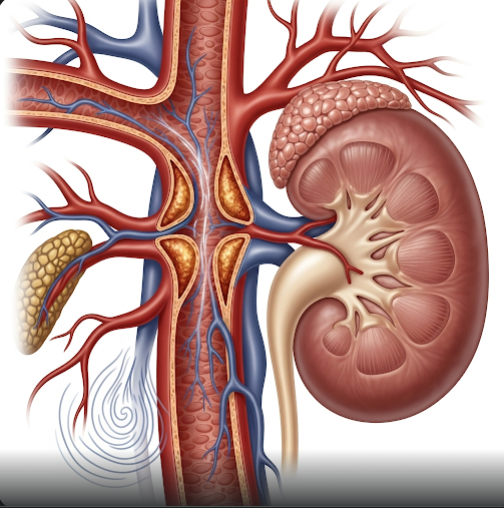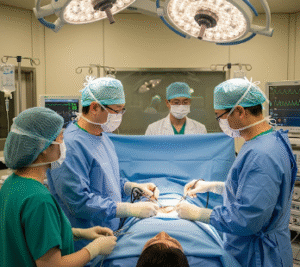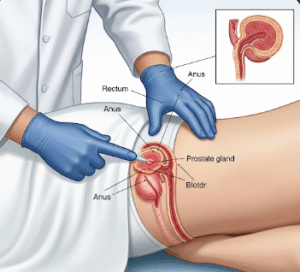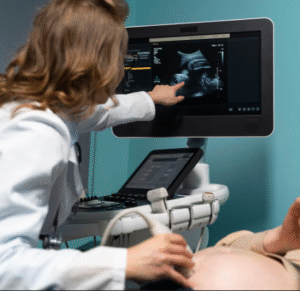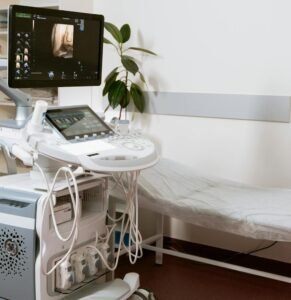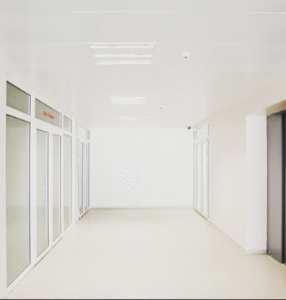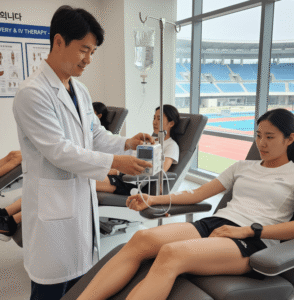Overview
Renal artery stenosis (RAS) is a condition characterized by narrowing of one or both arteries that supply blood to the kidneys. This narrowing reduces blood flow, potentially leading to hypertension (high blood pressure) and kidney damage. In Korea, advanced diagnostic tools and treatment options are widely available to manage renal artery stenosis effectively.
What is Renal Artery Stenosis?
Renal artery stenosis involves the partial or complete blockage of the renal arteries, often caused by atherosclerosis (plaque buildup) or fibromuscular dysplasia. Reduced blood flow to the kidneys triggers mechanisms that increase blood pressure, which can cause secondary hypertension and impaired kidney function.
Symptoms
- Often asymptomatic in early stages
- High blood pressure resistant to medication
- Kidney dysfunction or unexplained decline in kidney function
- Fluid retention and swelling
- Occasionally abdominal or flank pain
Causes
- Atherosclerosis: buildup of fatty plaques in artery walls (most common cause in older adults)
- Fibromuscular dysplasia: abnormal growth of artery wall cells causing narrowing (more common in younger women)
- Rarely, other vascular diseases or trauma
Risk Factors
- Older age
- Smoking
- High cholesterol and atherosclerosis
- Diabetes
- Hypertension
- Family history of vascular disease
Complications
- Uncontrolled hypertension leading to cardiovascular disease
- Progressive kidney damage or failure
- Increased risk of heart attack and stroke
Prevention
- Controlling risk factors like hypertension, diabetes, and cholesterol
- Lifestyle changes such as smoking cessation, healthy diet, and regular exercise
- Regular monitoring in high-risk patients
Treatment Options in Korea
Diagnosis
- Doppler ultrasound to assess blood flow
- CT angiography and MR angiography for detailed imaging
- Renal arteriography for definitive diagnosis and potential intervention
Medical Treatments
- Blood pressure management using antihypertensive drugs
- Statins and antiplatelet agents to control atherosclerosis
- Regular monitoring of kidney function
Interventional & Surgical Treatments
- Percutaneous transluminal renal angioplasty (PTRA) with or without stenting to open narrowed arteries
- Surgical revascularization in complex or resistant cases
- Minimally invasive endovascular procedures preferred for faster recovery
Advanced Therapies
- Use of drug-eluting stents and advanced catheter techniques
- Integration of intravascular ultrasound (IVUS) for precise treatment
Rehabilitation and Support
- Follow-up imaging and kidney function tests to monitor treatment success
- Lifestyle counseling and medication adherence support
- Management of associated cardiovascular risk factors
Top Hospitals or Clinics in Korea for Renal Artery Stenosis
- Seoul National University Hospital – Experts in vascular intervention and nephrology
- Asan Medical Center – Advanced endovascular treatments and kidney care
- Samsung Medical Center – State-of-the-art interventional radiology services
- Yonsei Severance Hospital – Comprehensive vascular and renal specialty care
- Korea University Anam Hospital – Skilled in minimally invasive procedures and management

